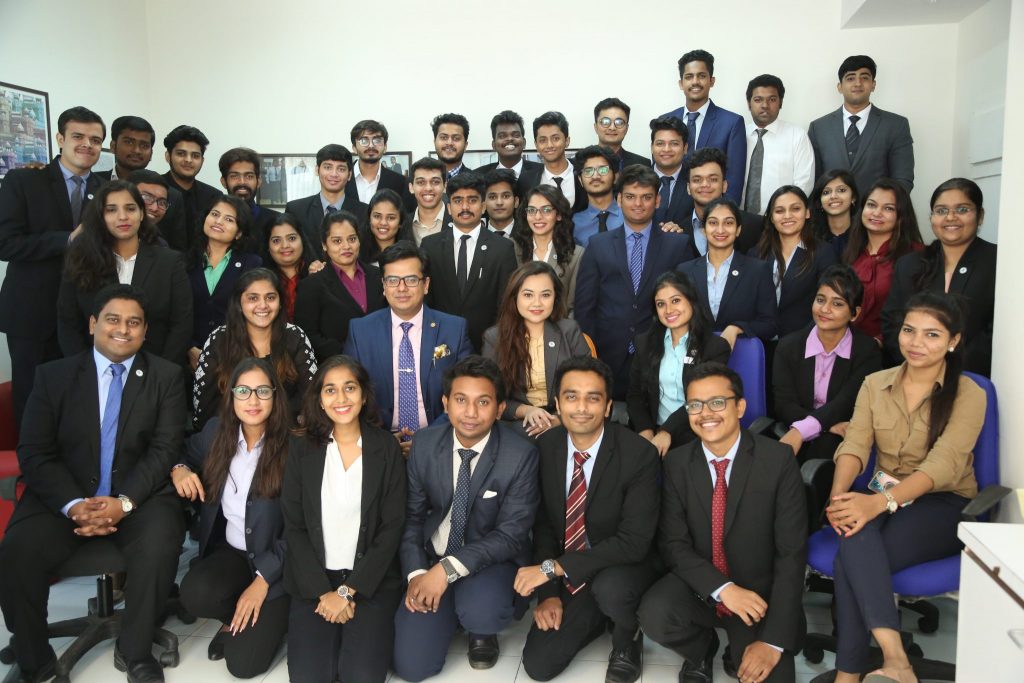
Using data to succeed: tools for machine learning
Insights into key terms and processes involved when working with data science teams are revealed using an accessible narrative in this excerpt from Winning with Data Science


India’s burgeoning young and aspirational population ensures an ‘insatiable’ demand for quality business education, according to Aditya Singh, Director of Athena School of Management in Mumbai.
This underlines the importance of the place held by the country’s business schools in society, their responsibility towards it, and their potential to make an impact.
‘A good business programme is not only about a qualification,’ says Singh, cautioning against the ‘commoditisation of business education’.
In the following interview, with Business Impact’s Content Editor Tim Dhoul, Singh outlines the approach and ambitions of Athena School of Management, encompassing the importance it attaches to internships and experiential learning as well as the value of community work.
Demand for places at top business schools in India is high. Are there any particular qualities Athena looks for among its applicants?
The phrase we use constantly is ‘marks don’t make a business leader!’. While we do give weightage to academics and scores, we follow a profile-based admissions process.
We evaluate applicants equally on the basis of their extra-curricular achievements, including achievements in sport, social impact projects and volunteering activities, as well as their work experience and any prior international exposure. Most importantly, we evaluate their desire and hunger to succeed in making a positive and sustainable impact both in business and society.
What are some of the biggest challenges facing business schools in India and the surrounding region, in your opinion?
Indian business schools have to be extremely careful to avoid commoditisation of business education. A good business programme is not only about a qualification!
With a huge young and aspirational population below the age of 25, there is an insatiable demand for good education [in India]. However, it is critical that business schools keep their eye on the ball and realise that the final measure of our success is going to be borne out by the number of our graduates that excel in the corporate world and the world of business.
How many entrepreneurs are we truly able to create?! business schools have to create actual and tangible management and leadership skills among their students.
What do you think makes Athena’s Post-Graduate Programme in Management (PGPM) programme stand out from others that are available in India?
The Athena PGPM is designed to be an experiential-based pedagogy with a focus on real-world and practical learning. Our goal is to ‘positively impact the world through our students’.
The programme’s key features include: multiple internships with some of India’s top companies and startups; international immersion programmes across Europe, Asia and Canada; a faculty that includes top corporate leaders at CEO, Director and VP levels; a campus in Mumbai, the commercial capital of India; and small class sizes to ensure quality teaching and a keen focus on the students’ personality and soft skills.

Can you tell me how internships are incorporated into Athena’s PGPM programme and why the school places so much importance in them?
Internships are an integral and important part of the Athena PGPM. The programme includes a two-month long internship in each semester, which works out at a total of six to seven months of internships during the whole programme.
Interns are expected to implement their learnings from class, and to improvise and execute on a real-time basis. Each intern has a mentor attached from the company who guides them.
Alternatively, some students choose to pursue an international internship where they work with organisations in different geographies, along with understanding and appreciating different cultures and societies. Athena students have interned in different countries in Europe and Asia, including Italy, Turkey, Germany and Nepal.
Aside from internships, how else does the school facilitate experiential learning?
Experiential learning is a constant form of learning where the student is the ‘centre of gravity’ and the faculty are enablers and facilitators of learning rather disseminators of information. In order to facilitate, we include design thinking, action learning and project-based learning.
Students pursue live projects with companies and NGOs, case study competitions, multiple internships along with consulting assignments. Students also have to work with projects in the social sector and with non-profits in order to truly understand business impact at all levels of society.
Do you think that PGPM/MBA curricula should be developed in collaboration with employers?
At Athena, we believe that potential employers have an extremely important role to play in the design and implementation of our programme. We follow the end-user process of curriculum design in order to keep our modules relevant and at the cutting edge of business practice and innovation.
Inputs and guidance are taken from senior stakeholders representing potential recruiters along with roundtables and conclaves that are held to discuss the changing and rapidly evolving business environment.
Can you tell me a little bit about Athena’s international immersion modules?
Global exposure and cross-border learning experiences go a long way towards creating future global leaders. While the international immersions are not mandatory, an increasing number of students are embracing the opportunity.
This year, we have students travelling to Singapore, Germany, Canada and the US for modules on topics ranging from leadership and entrepreneurship to analytics and Industrial Revolution 4.0. The experience of studying at these global institutions as well as interacting and living with students from across the world is a truly life-enhancing experience.

I note that community service and personal development initiatives are actively encouraged at the school. Can you tell me of any programme requirements here and/or what options are available to students during the programme?
While prior experience in community and/or social development is not mandatory, it is preferred. At the school itself, we actively partner with organisations such as Rotary International, AIESEC, Rotaract and other NGOs to make a positive impact on society.
Athena is also an academic partner of the United Nations Global Compact which reinforces our vision to contribute towards the Sustainable Development Goals (SDGs).
It is mandatory for all Athena students to complete at least one live project towards community/social development.
What are your hopes for the school in the next five years – what do you want to see happen?
Our vision is to challenge the limits and change the parameters of what traditional management education has been in India. We see trending areas in business education that include entrepreneurship, analytics and design thinking, and we wish to establish a centre of excellence in each of these.
We also hope to increase the trend of international students studying with us in Mumbai. The hope is that, in the next five years, an Athena business graduate can create value for their organisations or create their own venture anywhere in the world equipped with experiential and innovative learning, international exposure, and a desire to excel and contribute to society.
Is there anything you’d like to see change among business schools both in India and in the rest of the world?
In a rapidly changing socioeconomic context, we have to become nimbler and more flexible in delivering solutions to our students which are relevant to the business environment.
We need to be able to predict change effectively and stay ahead of the curve rather than playing catch up. Business schools also need to shift focus from extremely theory-centric learning to practical and real-world learning while encouraging students to become change agents in their future organisations. We have to harness new technologies so that they can complement and, in some cases, supplement current learning methodologies.

Aditya Singh, Director of Athena School of Management, Mumbai, India

Insights into key terms and processes involved when working with data science teams are revealed using an accessible narrative in this excerpt from Winning with Data Science

How can VR and AR transform business education? Woxsen University’s Hemachandran K and Raul Villamarin Rodriguez outline five benefits and detail challenges that must be overcome to realise the technologies’ potential

A Woxsen University initiative aims to empower female secondary school students to break free of societal expectations, while also upskilling MBA students. Dean Kakoli Sen explains the process behind Project Aspiration

Generative AI has the potential to revolutionise business and management education. Director of research at Woxsen University Rajat Gera outlines the opportunities

Development impact bonds are a promising financial tool that can improve the lives of those in need around the world, but measurement standards and guidance are needed to secure investors’ commitment. Woxsen University’s Disha Gupta and Kakoli Sen explain why, drawing on four case studies from India

How can business schools help students develop real-world skills that go beyond the technical and theoretical? Woxsen University’s Dr Hemachandran and Dr Raul Villamarin Rodriguez outline seven strategies that can enhance student outcomes
For questions about editorial opportunities, please contact:

